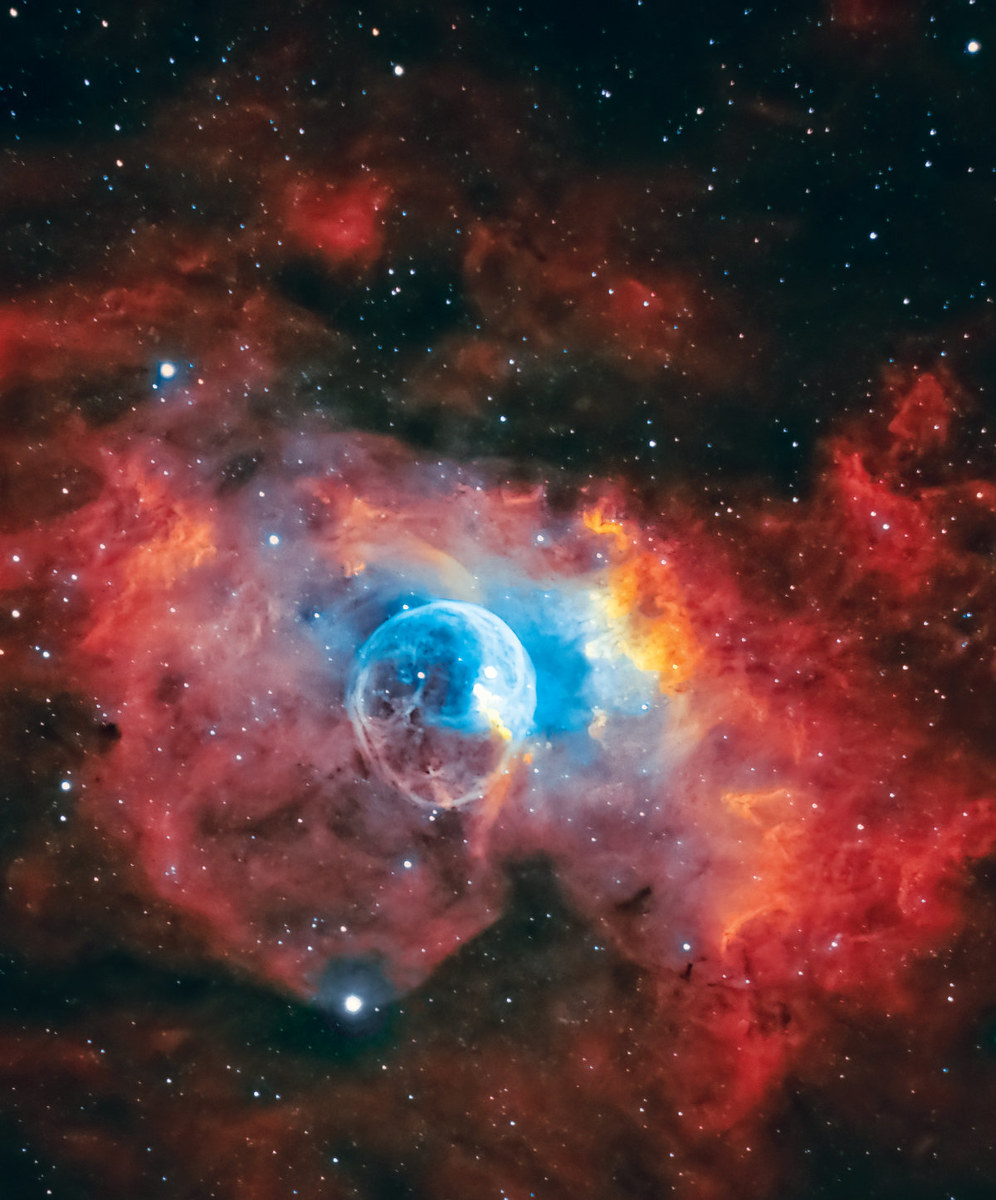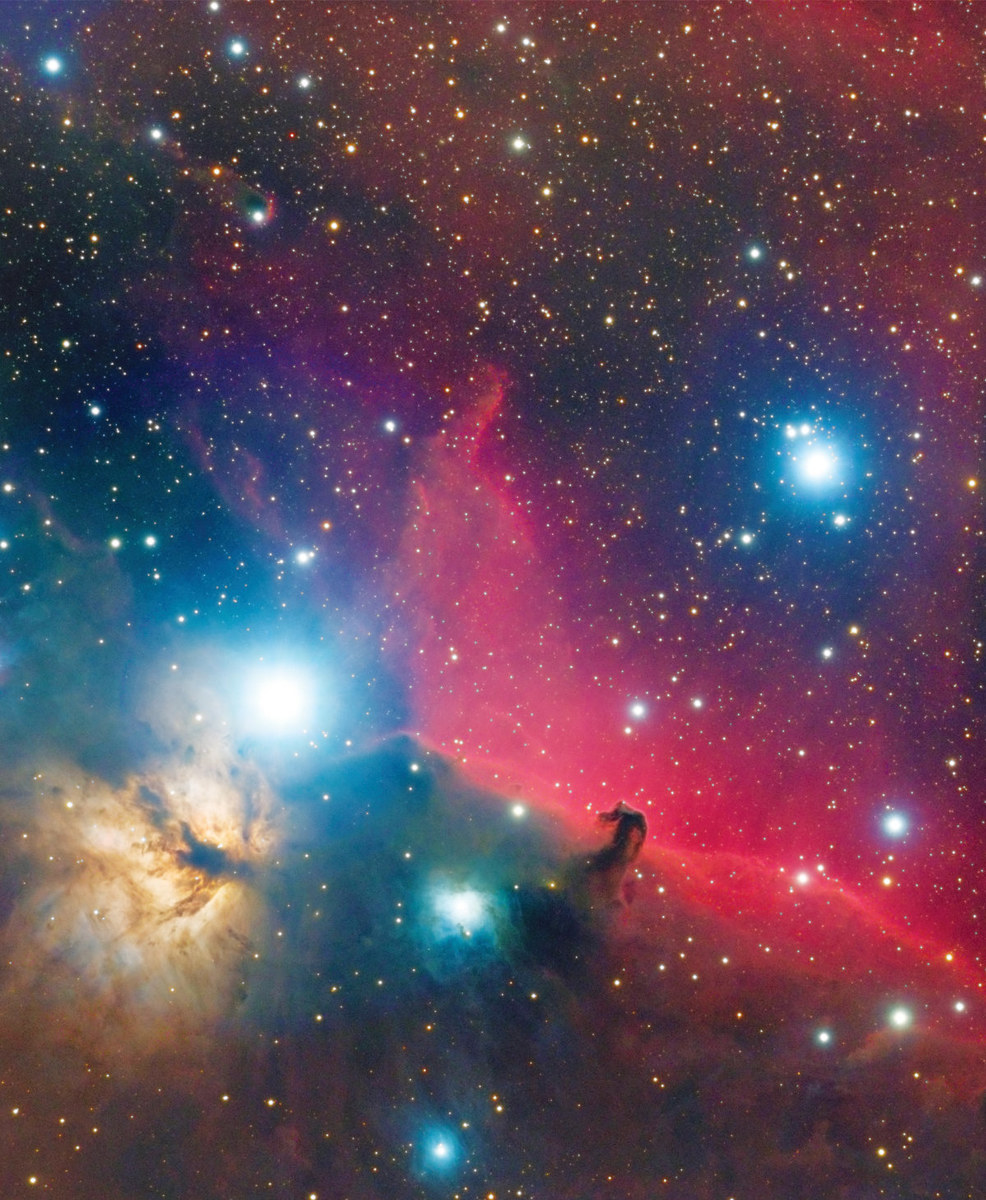JEDDAH: Astronomy enthusiasts in Saudi Arabia are observing International Astronomy Day and World Space Week this year by encouraging others to look up in wonder with some visual and auditory help.
International Astronomy Day is celebrated twice a year — around the times of the Spring and Autumn equinox or first quarter moon — to highlight how the constellations and other astronomical objects vary throughout the year.
Arab and Muslim scholars have made significant contributions to astronomy throughout history — suggesting scientific and mathematical methods; naming stars and nebulae; and more.
While it may seem that we now spend less time looking at the skies, and more time looking down at our screens, 21st-century technology is actually enabling enthusiasts across the world to share knowledge, spread information, and raise awareness at lightning speed.
In Saudi Arabia, Astromania — founded by Mahdi Al-Sulaiman, Fatima Hilal, and Abdullah Al-Meshari, a trio of space lovers — has made good use of this technology, starting a podcast in 2019 to complement its stargazing trips into the desert, which enable people to check out some of the brightest astronomical objects through telescopes.

International Astronomy Day is celebrated twice a year to highlight how the constellations and other astronomical objects vary throughout the year. (Supplied)
“I’ve always been interested about space, and I wanted to create an Arabic platform that helps other people to know more about it in a non-academic style, in a fun and easy-to-understand way,” Hilal told Arab News.
“People were weirded out and surprised when they heard about the subject. But now people understand the idea when they listened to the podcast for the first time. I know it is a unique subject, but it is a passion of mine,” she added.
While there is Arabic-language astronomy content available online — notably on Wikipedia and a few social-media pages — Astromania is, the group claim, the first podcast in Arabic talking about astronomy and space. It is an independent project, but the founders work closely with the Saudi Space Authority too.
The podcast quickly gathered popularity, even attracting the attention of the Kingdom’s Unified National Platform, which selected Astromania as one of the top 14 podcasts to listen to during the COVID-19 pandemic.
“We wanted to create something out of love, so basically we are doing this podcast for free,” Hilal said. “The main reason why we created this podcast is to educate people more about the world and people’s support is very important to us.”
HIGHLIGHTS
While there is Arabic-language astronomy content available online Astromania is the first podcast in Arabic talking about astronomy and space. It is an independent project, but the founders work closely with the Saudi Space Authority too.
The podcast quickly gathered popularity, even attracting the attention of the Kingdom’s Unified National Platform, which selected Astromania as one of the top 14 podcasts to listen to during the COVID-19 pandemic.
To celebrate World Space Week, the UK’s National Space Center is running a ‘Women in Space’ program to shed light on women’s role in the science of space and astronomy throughout history.
To celebrate World Space Week (which runs from October 4-10), the UK’s National Space Center is running a “Women in Space” program to shed light on women’s role in the science of space and astronomy throughout history. Hilal expressed her excitement at the theme.
“This will definitely help young girls to consider space science as a profession,” she said. “We already have some successful Saudi women who work in the field, like Ghada Al-Muttairi and Mashael Al-Shammari. They are setting an example for Saudi women.”
To coincide with International Astronomy Day and World Space Week, this month’s episode of the Astromania podcast features Jordanian-British filmmaker Kinda Al-Kurdi, who won the Best Documentary Short Film award for her film “As in Heaven, So on Earth” at the Moscow International Film Festival, Hilal said. “We are going to discuss the relationship between films and space.”
Hilal’s co-founder Mahdi Al-Sulaiman told Arab News that events such as World Space Week remind people “to think beyond our planet and beyond our differences. To work together as men and women of this great nation to pave the way for a better and prosperous future for the next generations.”

International Astronomy Day is celebrated twice a year to highlight how the constellations and other astronomical objects vary throughout the year. (Supplied)
He continued, “We are not just sharing one planet, we share one fate. And space exploration unites us as a species, despite our differences. I hope the celebration of International Astronomy Day will also inspire future generations to become astronauts, space scientists, or work in the space industry, to build a better tomorrow and take the next giant leaps to sustain mankind’s future.”
Joining in on the celebrations is avid Saudi astrophotographer Anas Al-Majed who has, for years, frequented the Kingdom’s many deserts, searching the night skies through his telescope for the perfect shot.
Al-Majed — who purchased his first telescope seven years ago — told Arab News he was “awestruck” by the detail it provided.
“From Saturn’s rings to Jupiter’s bands and Great Red Spot, my interest grew and I delved into deep-sky objects such as the Andromeda Galaxy and the Orion Nebula.”
His experience with astrophotography has made a lasting impression, he said. And he encourages everyone to consider taking the time to learn more about our galaxy and what lies beyond it.
“We need everyone to be part of space programs,” he said. “The space industry can help human advancement and provide equal opportunities for everyone.”



































